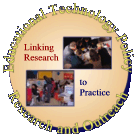









|
Partners
|
|
|
 Beechfield Elementary Beechfield Elementary- Survey Course Presentation for Beechfield Elementary [Source]
 Technology Certificate Program Technology Certificate Program Baltimore Learning Community/Maryland Electronic Learning Community Baltimore Learning Community/Maryland Electronic Learning Community First Certificate Recipients First Certificate Recipients 2001 Graduate Portfolio Night 2001 Graduate Portfolio Night BCPSS Showcase BCPSS Showcase
|
 Technology Courses Technology Courses Training - Inservice Training - Inservice - Technology in education for data-driven decision making
|
 2001 Satellite Academy 2001 Satellite Academy- Designing Learning with Technology - This is a hands-on, learner centered course that will introduce educators to the logic of a backward design approach to curriculum planning, assessment, and
instruction. Focus will be directed to criteria selection in matters of understanding; design standards for quality control; and misconceptions and misunderstandings
toward integrating technology into the classroom. McTighe's and Wiggins', Understanding by Design approach will provide the framework for the exploration of
the six facets of understanding and will serve as a guide through the three stages of the backward design process. Educators will locate, access, retrieve, evaluate,
and archive information pertaining to their school's MSDE assessment scores, state content standards, and performance assessment tasks. Emphasis will be placed
on building skills and confidence in participants abilities to determine the best tools and methods to locate and present information, and to develop the ability to
evaluate information, investigate the various resources available to researchers and educators, and present their findings in intellectual and practical settings through
the backward design approach.
 Course Presentations Course Presentations-
 Satellite Academy Projects Satellite Academy Projects- Teachers have finished their Webquests. Please feel free to explore their excellent work.
| Montgomery County Public Schools
 Technology Courses Technology Courses
|
Prince George's County Public Schools
 Technology Courses Technology Courses Langley Park Elementary School Langley Park Elementary School- Computer Homework Club
 PT3 Grant - Building Learning with Technology PT3 Grant - Building Learning with Technology- In the Building Learning with Technology project faculty and students from the University of Maryland, College Park, Prince George's Community College, and the Prince George's County (MD) Public Schools are working in design teams to create and implement engaging, performance-based units enriched with technology. These units are being implemented in college/university courses or field experiences in which future teachers enroll. This 3-year Implementation grant is funded through a "Preparing Tomorrow's Teachers to Use Technology" (PT3) grant awarded by the U. S. Department of Education.
|
 Technology Certificate Program Technology Certificate Program Assessment Program Assessment Program Presentations Presentations
|
|
|
|
|
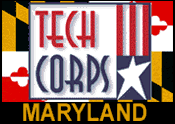 |
TECH CORPS Maryland is committed to enhancing K-12 education through the effective use of technology by facilitating linkages and collaboration between schools and the community. |
| Prince Georges County Technology Council |
Business Education Linkage: Creates incentives and encourages better linkages between technology companies and local schools, colleges and university. In 2001, the Business Education Linkage Committee supported Prince George's County Public Schools in their successful application of the Power Up program assisting with three computer labs and helping to bridge the "digital divide" in under-served communities across Prince George's County. |
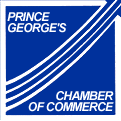 |
Education/Workforce Committee:
Initiate and promote the business community’s interests in workforce development and school system management. Support efforts for school system curriculum development, teacher recruitment and retention.
Meetings: 1st Wednesday of each month, 8:30 a.m. |
 |
ISTE is a nonprofit professional organization with a worldwide membership of leaders and potential leaders in educational technology. They are dedicated to promoting appropriate uses of information technology to support and improve learning, teaching, and administration in K–12 education and teacher education. ISTE’s role is leadership—they provide our members with information, networking opportunities, and guidance as they face the challenge of incorporating computers, the Internet, and other new technologies into their schools. |
 |
The mission of MSDE is to provide leadership, support, and accountability for effective systems of public education, library services, and rehabilitation services. |
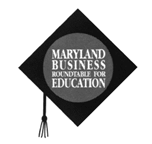 |
To support reform of systems and processes affecting student success in elementary and secondary schools,the MBRT undertakes a long-term commitment to the achievement of Maryland's public school reform initiative. |
 |
MICCA, which originally stood for 'Maryland Instructional Computers Coordinators Association', is an organization for everyone interested in technology and education. They are dedicated to providing leadership for advancing meaningful uses of technology in the educational communities of Maryland. |
 |
The Mid-Atlantic Regional Technology in Education Consortium (MAR*TEC) is comprised of Temple University Center for Research in Human Development and Education, Fairleigh Dickinson University, Frostburg State University of Maryland, and a network of rural and urban demonstration schools across the region. MAR*TEC aims to address the region's educational reform needs to ensure that every student in the region becomes technologically proficient to enhance their ability to achieve schooling success and fully participate in the workplace of 21st century America and the global economy. |
 |
Research for Better Schools is a non-profit educational research & development firm that has been serving educators in the Mid-Atlantic region of Delaware, District of Columbia, Maryland, New Jersey, and Pennsylvania since 1966.
Their mission is to help students achieve by supporting improvement efforts in schools and other education programs. RBS has received funding from federal and state agencies, local school districts, private schools, foundations, professional ssociations, and private industry.
RBS currently operates the Mid-Atlantic Eisenhower Consortium for Mathematics and Science Education, under a grant from the U.S. Department of Education. It also offers educational technology, development, evaluation, technical assistance, and training services. RBS Publications provides research and best practices-based products for practitioners and policymakers. |
 |
The Consortium is a powerful force for the advancement of higher education in and around the nation's capital. Comprised of twelve universities and two colleges, the Consortium provides 130,000 students with opportunities to benefit from the combined resources of its members. Consortium institutions educate students from all 50 states as well as more than 14,000 from around the world. Students and faculty from over 150 countries and all continents can be found here. |
 |
The Maryland Distance Learning Association (MDLA) is an association of learning professionals who advocate and promote the coordination and use of distance learning in Maryland and throughout the region. |
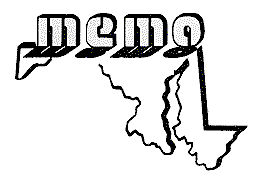 |
The general purpose of this non-profit educational organization shall be the improvement of teaching and learning in Maryland by bring together individuals who are engaged in the field of school library media and information studies which fosters curriculum support and information retrieval and
use. |
 |
The mission of the Association for Educational Communications and Technology is to provide leadership in educational communications and technology by linking professionals holding a common interest in the use of educational technology and its application to the learning process. |
 |
The American Educational Research Association is concerned with improving the educational process by encouraging scholarly inquiry related to education and by promoting the dissemination and practical application of research results.
AERA is the most prominent international professional organization with the primary goal of advancing educational research and its practical application. Its more than 22,000 members are educators; administrators; directors of research, testing or evaluation in federal, state and local agencies; counselors; evaluators; graduate students; and behavioral scientists. |
 |
The Western Maryland Consortium provides workforce development services through the federally funded Workforce Investment Act, in the three western Maryland counties, which are Washington, Allegany, and Garrett. The Consortium is a regional, government agency and was formed in 1974 through an agreement between the Boards of County Commissioners in each member county. |
 |
Improving school mathematics and science through its educators -- in the District of Columbia, Delaware, Maryland, New Jersey, and Pennsylvania -- is the purpose of the Mid-Atlantic Eisenhower Consortium for Mathematics and Science Education. Housed at Research for Better Schools (RBS), the Consortium functions as a central port -- it assembles crews of concerned parties at the local, state, and regional levels, and it distributes resources for all schools and for all mathematics and science educators. |
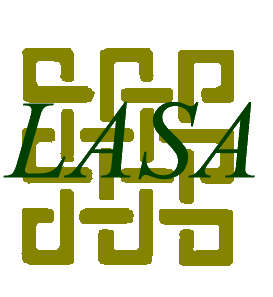 |
The Latin American Studies Association (LASA) is the largest professional Association in the world for individuals and institutions engaged in the study of Latin America. With over 5,500 members, thirty percent of whom reside outside the United States, LASA is the one Association that brings together experts on Latin America from all disciplines and diverse occupational endeavors, across the globe. |
|
|
|
